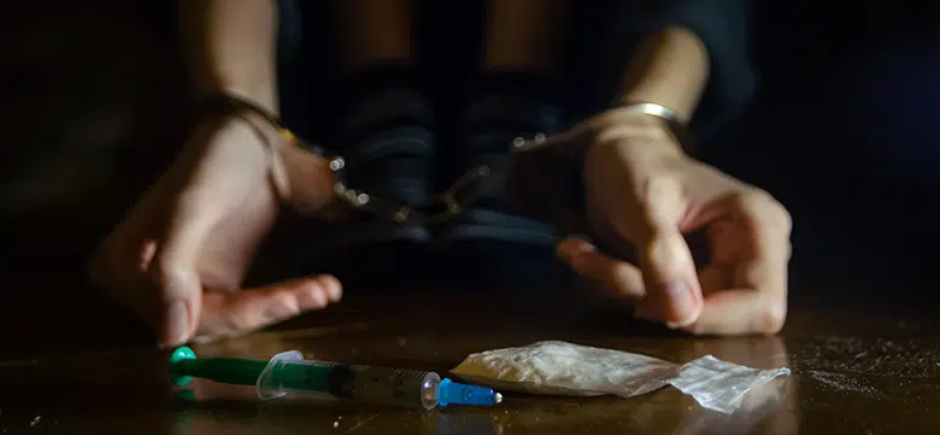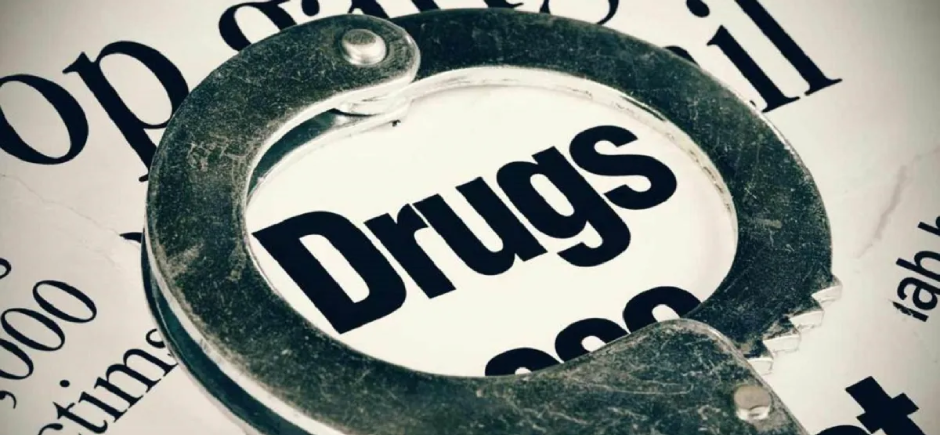Miami Federal Drug Crime Attorney

Drug offenses include crimes from individual possession to drug trafficking rings. Both federal and state agencies put significant resources into investigating and prosecuting drug crimes, particularly those involving large amounts of substances. The penalties for drug crimes are incredibly harsh, particularly at the federal level. If you are facing drug charges, you need a Miami federal drug crimes lawyer by your side.
Both the Drug Enforcement Administration (DEA) and the Federal Bureau of Investigation (FBI) investigate, arrest, and prosecute many federal crimes, including drug offenses. These agencies have a significant amount of resources at their disposal, and it can be overwhelming to face a federal investigation. It is critical that you have legal representation guiding you through the process, regardless of whether you committed the crime. An attorney provides the greatest chance for you to protect your future.
The Kirlew Law Firm: Dedicated Federal Drug Crime Defense
Federal drug crimes are harshly prosecuted, and the consequences of conviction can affect you for your entire life. You need an aggressive legal defense with the relevant knowledge and experience to protect you against these charges. At The Kirlew Law Firm, we can bring you unparalleled and dedicated legal support. We advocate for your rights and interests whether you are facing federal charges, investigations, a grand jury, or an arrest.
Brian Kirlew has worked for years as a criminal defense attorney and as a public defender. His experience in criminal defense includes negotiation and trial cases, including in federal courts. Brian Kirlew and his team have a wide berth of knowledge in many areas of criminal law, enabling us to help you with complex cases where many charges overlap.
The Kirlew Law Firm is proud to support individuals, families, and businesses through Miami and the South Florida area. Federal drug crimes can have serious consequences if you are convicted, including prison time, fines, social and personal consequences, and a criminal record. Our team can review the facts of an investigation, your arrest, and the evidence against you to find the most effective defense strategy. We may be able to mitigate the consequences of your charges or help you avoid conviction.
When Is a Drug Crime Charged Federally in Miami?
Almost any drug offense has the potential to be charged at the federal level. However, the DEA and FBI tend to focus their efforts and resources on larger offenses, like the movement of controlled substances over state lines, the transport of high amounts of controlled substances, or offenses involving large organizations.
Crimes like importation, smuggling, trafficking, and conspiracy are more likely to be federally charged. You could also be charged with a federal drug crime if it was committed on federal property or if the investigating and arresting officer is a federal agent. When a drug offense is charged federally rather than on the state level, the consequences are much more serious. When facing drug charges, it’s essential to avoid common mistakes that can jeopardize your case. You can read more about these critical mistakes and how to protect your rights in this guide on common mistakes to avoid when charged with drug trafficking in Miami.

Types of Federal Drug Offenses
Although this is not a comprehensive list, drug offenses that are charged federally typically include:
- Drug Possession With Intent to Distribute
Possessing a controlled substance with the intent to distribute it can be a crime, even if no distribution took place. The prosecution will have to prove that you knowingly possessed the drug, had more of the controlled substance than is reasonable for personal use, and intended to distribute it. Depending on the circumstances, an attorney may be able to argue this charge down to drug possession, which has less severe consequences.
Manufacturing is the cultivation or creation of controlled substances. An individual cultivating controlled substances is less likely to be charged federally. However, large-scale drug manufacturing groups are more likely to be the target of federal investigations.
Drug trafficking is the distribution and sale of controlled substances at significant volumes. Simply possessing a large amount of specific substances can be charged as drug trafficking. This type of crime often crosses state lines, making it even more likely to be investigated and prosecuted by state agencies. It is crucial that you have an attorney advocating for your interests if you are facing drug trafficking charges.
Defenses for Drug Charges in Miami
The defenses your attorney may use against your charges should be tailored to your unique circumstances. Working with an attorney who understands federal drug offenses is important, as they will be able to quickly review the evidence against you and investigate your case to identify the ideal defense.
If there is insufficient evidence to convict you, the charges against you could be dropped. A defense attorney can provide a more proactive defense by challenging the existing evidence. This is especially relevant if the evidence was wrongfully obtained or mishandled.
An attorney can file to suppress evidence if the evidence was secured in an illegal search and seizure or if you were a victim of police entrapment. Entrapment occurs when a police officer convinces someone to do something illegal that they otherwise would not have done. If any evidence obtained was not handled properly, this may also allow it to be suppressed. If the prosecution loses significant evidence, they may drop the charges.
Your defense attorney may also explore other forms of defense strategies. If you had a prescription for the drugs you possessed, this could be one effective defense. In some cases, you may have had no knowledge of the drugs you’re accused of possessing. There may have also been a case of mistaken identity that resulted in your arrest. An attorney can review these and other options to determine the right steps to take.
Penalties for Federal Drug Offenses
The penalties for drug offenses can vary significantly. Many drug charges are felonies, although some may be misdemeanors. The significance of your charges and penalties depends on the following:
- The type of controlled substance involved. There are different schedules of controlled substances, and a more dangerous substance often results in more serious penalties.
- The amount of controlled substance. Greater amounts of a substance will have more severe consequences. Higher amounts of a drug may elevate a possession charge to possession with intent to sell or even to a drug trafficking charge.
- The nature of criminal activity. The exact crime will affect the severity of the charges. Possession is a less severe offense than trafficking, for example.
- Your prior criminal record. If you have prior convictions for drug offenses or other serious crimes, your penalties are more likely to be more significant. A judge is also less likely to grant you alternate sentences like probation or community service.
- There were other aggravating factors. If you committed the drug offense while in possession of a weapon or harmed anyone, this will increase the penalties associated with the charge.
Federal drug convictions can result in prison time, high fines, probation, and deportation. Some offenses have a mandatory minimum sentence.
What Are the Drug Schedules for Controlled Substances?
The DEA divides controlled substances into schedules, dependent on their accepted medical use and potential for physical dependence and abuse. Schedule I controlled substances have the most severe criminal penalties, and those in Schedule V have the least. The controlled substance scheduling is as follows:
- Schedule I: These have the highest potential for abuse, with serious psychological or physical dependence and no widely accepted medical use. This includes substances like heroin, lysergic acid diethylamide (LSD), 3,4-methylenedioxymethamphetamine (MDMA or ecstasy), cannabis, peyote, and mescaline. In most cases, even small amounts of these substances can result in serious charges.
- Schedule II: These substances have a high likelihood of abuse and dependence but are not as severe as those in Schedule I. This includes substances such as cocaine, methamphetamine, methadone, oxycodone, fentanyl, codeine, dextroamphetamine-amphetamine (Adderall), and products with less than 15 milligrams (mg) of hydrocodone per dose.
- Schedule III: These substances have a lower chance of dependence. Substances include ketamine, anabolic steroids, testosterone, and products with 90 mg or less of codeine per dose.
- Schedule IV: These are low-risk substances for dependence and abuse. This includes zolpidem (Ambien), alprazolam (Xanax), tramadol, lorazepam (Ativan), and diazepam (Valium).
- Schedule V: These substances have a very low risk of dependence and abuse. Substances include diphenoxylate/atropine (Lomotil), difenoxin/atropine (Motofen), pregabalin (Lyrica), attapulgite (Parepectolin), and cough suppressants with less than 200 mg of codeine per 100 milliliters (Robitussin AC, Phenergan with codeine).
The schedule of the controlled substance involved in an offense can significantly affect the penalties, but it is not the only factor. Typically, drug crimes on the federal level focus on large-scale operations involving high-schedule controlled substances. However, this does not prevent the federal prosecution of lower-schedule offenses.
Why Do I Need an Attorney for a Federal Drug Charge?
If you are charged with drug offenses, the federal prosecution likely believes they will be able to convict you. Whether or not you committed the crime, legal protection is crucial to safeguard your basic rights and ensure a fair legal process.
It can be overwhelming to navigate the federal criminal justice system, and the support of an attorney can make it easier to manage. Hiring an attorney is not an admission of guilt. It is, in fact, the most effective way to secure the most fair and beneficial outcome to your case.
FAQs
Working with an attorney is the most effective way to beat federal drug charges. The right defense will vary based on the unique circumstances of your crime, your arrest, and many other factors. An attorney can look at these unique factors and determine the right defense that protects your rights.
If drugs were found on you in an illegal search and seizure, an attorney can challenge the cause of the search. If your rights were violated, specific evidence could be removed from the case, potentially resulting in the charges being dropped.
The most effective way to beat a drug trafficking charge in Florida will depend on your unique circumstances. Some potential defenses include:
- Rights Violations: Evidence can be deemed inadmissible if it was secured illegally. Rights violations include search and seizure without a warrant or without probable cause, arrest without probable cause, and entrapment by police officers.
- Lack of Knowledge or Intent: If you were unaware the drugs were on your person or in your vehicle, or you were forced into taking part in drug trafficking under threat or force, this may mitigate the charges against you.
A drug crime is likely to be prosecuted on the federal level when one or more of the following is true:
- There is a significant amount of controlled substances involved.
- It is a large drug trafficking operation.
- The trafficking and sale of substances crosses state or international borders.
- The crime occurs on federal property, like a national park.
- Transport of substances occurred through federal carriers, such as the U.S. Post Office.
Many drug offenses can be charged under federal jurisdiction, but they are usually left to the state if they don’t involve these serious circumstances.
The punishment for drug possession in Florida depends on the type of controlled substance and the amount you were found with. Basic drug possession charges are a third-degree felony, which can result in up to three years in prison and up to $5,000 in fines. If the drug is cannabis, and less than 20 grams were found, the charge is a first-degree misdemeanor. Penalties include up to $1,000 in fines and up to one year of imprisonment. Drug possession could also be charged as a first or second-degree felony.



